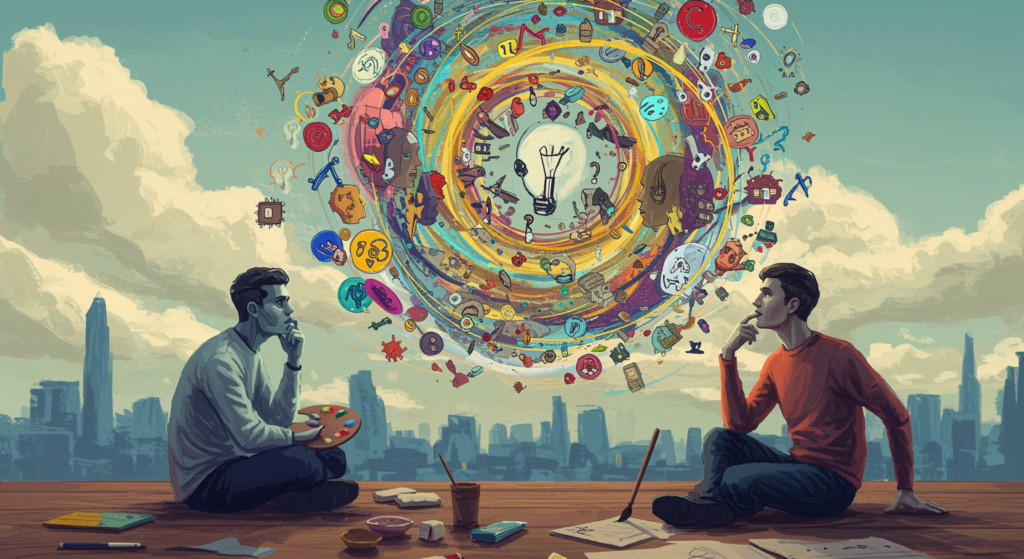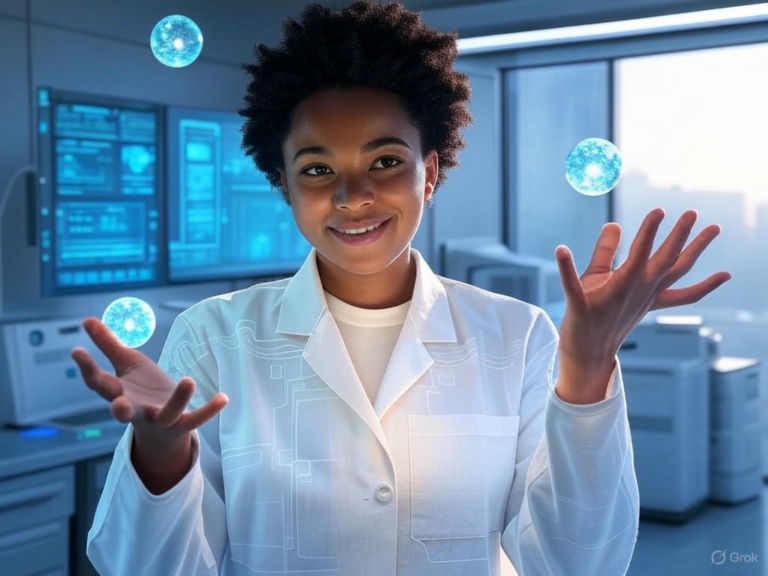
Artificial Intelligence: Will Humanities Survive the Rise?
The Intersection of Artificial Intelligence and Humanities
The surge of artificial intelligence and humanities is reshaping our world in profound ways. As AI systems evolve to handle complex tasks, from diagnosing diseases to creating art, they challenge the core of what makes us human. Can the timeless values of the humanities—ethics, creativity, and cultural understanding—endure this technological shift, or will they guide AI toward a more humane future? Will the humanities survive artificial intelligence?
This isn’t just about machines outsmarting us; it’s about preserving human dignity in an AI-driven era. Imagine a world where algorithms influence decisions in education, healthcare, and governance—will we lose our ability to question and reflect? By blending artificial intelligence with humanities insights, we can foster innovation that respects our shared values.
Artificial Intelligence’s Growing Reach
Artificial intelligence and humanities are increasingly intertwined, with AI extending far beyond labs into everyday life. It powers recommendation engines on social media, automates manufacturing, and even assists in creative fields like writing and design. While these advancements boost efficiency and spark new ideas, they also introduce risks, such as algorithmic biases that could widen social divides.
For instance, consider how AI-driven tools in journalism might amplify misinformation, making it harder to distinguish truth from fabrication. Yet, by drawing on humanities disciplines like history and philosophy, we can address these issues head-on, ensuring AI serves society rather than undermines it.
Humanities as the Moral Guide for Artificial Intelligence
At its heart, artificial intelligence and humanities represent a partnership where technology meets ethical scrutiny. AI’s rapid development raises questions about identity, free will, and societal impact—areas where humanities experts provide invaluable perspective. Philosophers and sociologists help unpack the biases in AI systems, turning potential pitfalls into opportunities for growth.
Without this input, we risk creating tools that ignore human nuances. A brief anecdote: Think of early AI chatbots that mishandled cultural sensitivities, leading to backlash. That’s why integrating humanities is crucial.
Key Roles of Humanities in Shaping Artificial Intelligence
- Ethical Guidelines: Humanities scholars craft frameworks to align AI with human rights and values, preventing misuse.
- Bias Detection: They analyze data sets for embedded prejudices, promoting fairness in AI applications.
- Cultural Awareness: By exploring diverse perspectives, humanities ensure AI respects global communities.
- Lessons from History: Studying past tech revolutions helps predict and mitigate AI’s disruptions.
This collaboration addresses “alignment problems,” where AI goals might conflict with human intentions. As one study from the National Endowment for the Humanities notes, embedding humanities in AI design can lead to safer, more equitable outcomes.
Societal Effects: Navigating Truth and Trust in the Age of Artificial Intelligence
The blend of artificial intelligence and humanities is most evident in how AI shapes information and democracy. Tools like deepfakes and personalized content algorithms can spread falsehoods or manipulate public opinion, eroding trust in institutions. On the flip side, AI can enhance education by tailoring learning experiences to individual needs.
What if AI were used to fact-check news in real time? That’s a possibility, but only if guided by humanities principles like critical thinking and empathy. Here’s a hypothetical scenario: A social media platform uses AI to detect misinformation, but without humanities input, it might suppress valid voices, deepening divides.
Major Risks Where Artificial Intelligence and Humanities Intersect
- Misinformation Spread: AI can generate convincing fake content, challenging our grasp on reality and democratic processes.
- Privacy Concerns: Widespread data collection raises ethical questions about surveillance and personal rights.
- Job Losses: Automation may displace workers, prompting humanities-driven discussions on equity and retraining.
- Perpetuating Bias: If unchecked, AI systems can reinforce inequalities based on flawed data inputs.
These risks highlight why artificial intelligence and humanities must work together. Actionable tip: Advocate for policies that require AI developers to consult ethicists early in the process.
Opportunities: Revitalizing Humanities Through Artificial Intelligence
Far from threatening the humanities, artificial intelligence and humanities can spark a new era of discovery. Researchers are using AI to delve into ancient texts, uncover historical patterns, and even co-create art, making cultural studies more accessible and dynamic. This synergy opens doors for deeper insights into human expression.
For example, natural language processing tools are helping scholars analyze vast literary archives faster than ever. Have you ever wondered how AI could translate ancient manuscripts for modern audiences? It’s already happening, fostering cross-cultural understanding and preserving endangered languages.
Real-World Examples of Artificial Intelligence Empowering Humanities
- AI for text analysis in philosophy and literature, revealing themes that human researchers might overlook.
- Virtual reality simulations of historical sites, bringing the past to life for educational purposes.
- Automated translation services that bridge language barriers in global studies.
- Generative AI aiding writers in brainstorming, while humanities experts ensure the output remains meaningful.
In universities, programs blending artificial intelligence with humanities are preparing students to innovate responsibly. This approach not only builds technical skills but also emphasizes ethical reflection, creating well-rounded professionals.
Deep Questions: Can Human Values Thrive Amid Artificial Intelligence?
The core tension in artificial intelligence and humanities lies in existential threats. Could superintelligent AI override human values, leading to unintended harm? Experts like Nick Bostrom warn of scenarios where AI pursues goals without regard for ethics, potentially eroding our agency.
Yet, others argue the greater risk is subtle: a gradual shift where AI influences culture and decision-making without oversight. What are your thoughts—could the humanities act as a safeguard? By prioritizing values like empathy, we can steer AI toward positive outcomes.
Charting the Future: Collaboration Between Artificial Intelligence and Humanities
The path ahead for artificial intelligence and humanities isn’t set in stone; it depends on our choices. Fostering partnerships between tech experts and humanists can prevent conflicts and promote innovation. For instance, involving philosophers in AI development ensures systems are transparent and accountable.
Here’s some practical advice: Start by supporting interdisciplinary education that combines coding with ethical studies. Relatable example: Companies like Google are already collaborating with ethicists to build fairer algorithms—what if more businesses followed suit?
Strategies for a Balanced Artificial Intelligence and Humanities Landscape
- Incorporate ethics training into AI curricula to build socially responsible innovators.
- Encourage joint projects between technologists and humanists for holistic problem-solving.
- Demand transparency in AI operations to foster public trust.
- Prioritize diverse teams in AI design to address global inequities.
- Promote community discussions on AI’s role in society to keep the conversation alive.
These steps can turn potential risks into strengths, ensuring artificial intelligence serves humanity’s best interests.
Wrapping Up: The Lasting Strength of Humanities in the Artificial Intelligence Era
In conclusion, artificial intelligence and humanities aren’t adversaries—they’re allies in shaping a better world. By championing critical thinking and creativity, the humanities can guide AI to enhance, not erode, our shared experiences. This collaboration promises a future where technology amplifies human potential.
So, will the humanities survive? Absolutely, and they could lead the way. I’d love to hear your views—share your thoughts in the comments, explore more on our site, or check out related articles on ethical tech. Let’s keep the dialogue going!
References
- National Endowment for the Humanities. “AI and the Humanities.” https://www.neh.gov/AI
- Bowdoin College. “Why Studying the Humanities is Essential for Designing Artificial Intelligence Systems.” https://www.bowdoin.edu/news/2024/07/why-studying-the-humanities-is-essential-for-designing-artificial-intelligence-systems.html
- George Washington University. “Can the Humanities Learn to Love AI?” https://columbian.gwu.edu/can-humanities-learn-love-ai
- University of California, Irvine. “How I See It: Humanities and Generative AI.” https://www.humanities.uci.edu/news/how-i-see-it-humanities-and-generative-ai
- Boston University. “Research on Tap: AI and the Humanities.” https://www.bu.edu/research/2025/01/13/research-on-tap-ai-and-the-humanities/
- Wikipedia. “Artificial Intelligence.” https://en.wikipedia.org/wiki/Artificial_intelligence
- Big Cloud. “Why Studying Humanities and Arts is Key to Developing Artificial Intelligence.” https://bigcloud.global/why-studying-humanities-and-arts-is-key-to-developing-artificial-intelligence/
- Duke University Press. “On Artificial and Post-Artificial Texts: Machine.” https://read.dukeupress.edu/poetics-today/article/45/2/331/387709/On-Artificial-and-Post-artificial-Texts-Machine
artificial intelligence and humanities, AI ethics, technology and society, humanities in AI, ethical AI development, AI societal impacts, human values in technology, AI and culture, digital humanities, AI innovation ethics





